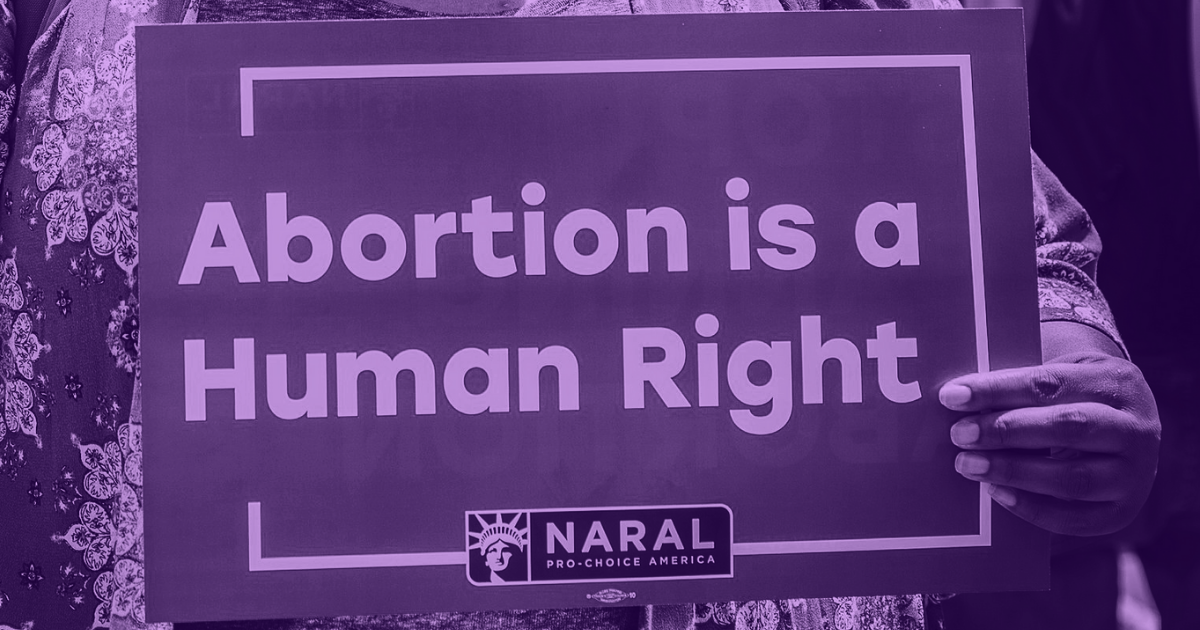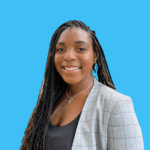When Texas Gov. Greg Abbott signed Senate Bill 8, the overbearing and intrusive six-week abortion ban in the 2021 legislative session, a specific piece of my brain and heart that I closed off for a long time started to open up.
The shame and stigma surrounding abortion stopped me from openly telling my story. But after an opinion draft of the United States poised to overturn Roe v. Wade leaked on May 3, my story of independence, self-determination, and self-love reminded me of the scared 19-year-old girl desperate for help and care.
And as abortion and reproductive justice become a mainstream conversation, let the record show that this 23-year-old progressive Black woman and journalist is pro-abortion, pro-peoples choice, and pro-freedom. There is no freedom in the United States and more specifically for Black people or Black women if we are not the sole decision-makers of our own lives.
I come from a family of hard-working Black folks who instilled in me that education, God, and a good head on your shoulders will keep you on the right path. Teenage pregnancy, failure, and mishaps weren’t and still aren’t an option for Black people.
At 19-years-old, I was living the dream, and in college, playing my favorite sport in the world, soccer, with a great social life of partying every weekend. Like most student-athletes, I was always busy juggling practice, classes, traveling for games, study sessions, and maneuvering through my job as a newly appointed news writer for the college newspaper.
My boyfriend at the time was also a student-athlete with a busy schedule, but we made time for each other. I’ve always believed you make time for what you care about, and we cared about each other. Like any first love, I thought it was him and me forever.
But a couple of months into our relationship, I learned I was pregnant. All that love, optimism, hopefulness, and joy came crashing down. Immediately, we were at odds on what to do, and our relationship was at a standstill.
Every morning I would wake up wishing, hoping, and even praying for God to free me from the pregnancy. I remember my boyfriend would cry from love and excitement while I would cry for hours at a time in fear. I wallowed in the shame and stigma of teenage pregnancy and rejected the slight possibility of caring for a child I did not want to have. Suicidal thoughts, depression, and even anger ran through my mind every waking minute until I went to sleep. From the second I learned, I was pregnant, I knew. And I took that moment to choose myself.
For weeks, I researched abortion clinics in my area, contacted practitioners online for help on how to do self-inducing abortions, and sipped on teas that I read on the internet could “allegedly” miscarry a child. Nothing worked. And the desperation, sadness, and physical ailments of pregnancy started to consume me. For the first time in my life, my body no longer felt in sync with my psyche. I still had soccer practice, class, and my job at the paper and tried to move through life as normally as possible.
While trying to be a typical college student, I also had no money, and the idea of contacting abortion funds never crossed my mind. In actuality, I didn’t even know they existed. After a year in the political space, I have learned that abortion funds are the backbone of reproductive justice. But in my story, I went to the only source I knew best, my family. After a complicated conversation with my mom, a strong Christian woman, she assured me she had my back, and everything would be okay.
After weeks of trying to book an appointment, at 12 weeks pregnant, I walked into an abortion clinic, ready for my first appointment. During my two-day visit to the clinic, I remember the three-minute walk from the car to the building with anti-abortion protestors heckling, holding signs of fetuses, and specifically an older white woman screaming statistics at me about the number of Black babies aborted every year.
“Don’t you want to save your Black baby,” she said. Weird.
In a society that doesn’t love Black people or Black children, I thought it was ironic the only time white people seemingly care about Black children is in the womb. In reality, Black children are policed, criminalized, and belittled by the world the minute they step outside the walls of their homes. There is no such thing as love or protection for them in a white supremacist’s America.
Before Texas’ six-week abortion ban, Texas law required pregnant people to have two-day visits and wait 24 hours to seek care but made patients sit with a counselor/therapist to go over alternative options. The counselor asked me questions about my boyfriend and I’s relationship, whether he agreed with my decision, and what would happen if I went through with the pregnancy. Indeed, it was none of her business, but I answered anyway. I could tell she was coercing me to change my mind, but I stayed firm in my decision. I never swayed from believing in my life’s goals, aspirations, and dreams. And a child didn’t fit into the picture then.
I also knew that Black, Latinx, AAPI, and Indigenous women are the head of every strong family unit. And at this time, I was weak. I also knew that Black women are the largest population to die in childbirth and are often neglected by the very systems we need the most. Still, in 2022, according to statistics, Black women die at three times the rate of other races, and I refused and still refuse to be just another number or hashtag.
After a consultation with the doctor, the abortion was a quick surgical procedure that relieved me of the weight on my shoulders I had been holding on to for 12 weeks. I went home with pain medicine in hand and recovered quickly, wishing desperately to return to my everyday life. But shortly after, my relationship fell apart, and we couldn’t recover from our differing opinions on my decision.
I lost a partner, a relationship, and first love, but I gained something even bigger. My voice, control over my bodily autonomy, and the chance to take control of my life. Every opportunity, accomplishment, and experience I’ve had since the abortion came solely from deciding when and if I want a family. My abortion story may or may not be similar to many people in the United States, but one common theme is self-love.
Not if, but when the Supreme Court of the United States nullifies Roe v. Wade, the very fabric of America’s sentiments of choice and freedom will only be available to half of the population. How can a country that stands on freedom and liberty strip people of the rights they need to live? There is nothing free or “pro-life” about forced births, lack of access to healthcare, or banned contraception.
Women, non-binary, and transgender pregnant people will die because of these anti-abortion, anti-contraception, and anti-sex education laws. And their deaths will be on the hands of elected officials. Once again, the U.S. Senate failed to pass the Women’s Health Protection Act, codifying Roe, with anti-abortion Democrat Sen. Joe Manchin siding with Republicans. American elites, specifically white American rich people will always have access to abortions despite their political theater and semantics.
As we prepare for the overturning of Roe, minority, low-income, and immigrant communities must stand together now more than ever to fight the beast of American elitism. No one is coming to save us but us. And we must continue the fight to achieve real freedom and choice in our lives. Abortion is healthcare. Abortion is essential. Abortion is freedom.
If you or anyone you know needs an abortion visit needabortion.org or ineedna.com.
Kennedy is a recent graduate of the University of St.Thomas in Houston where she served as Editor-in-Chief of the Celt Independent. Kennedy brings her experience of writing about social justice issues to the Texas Signal where she serves as our Political Reporter. She does everything from covering crime beats, Texas politics, and community activism. Kennedy is a passionate reporter, avid reader, coffee enthusiast, and loves to travel.





